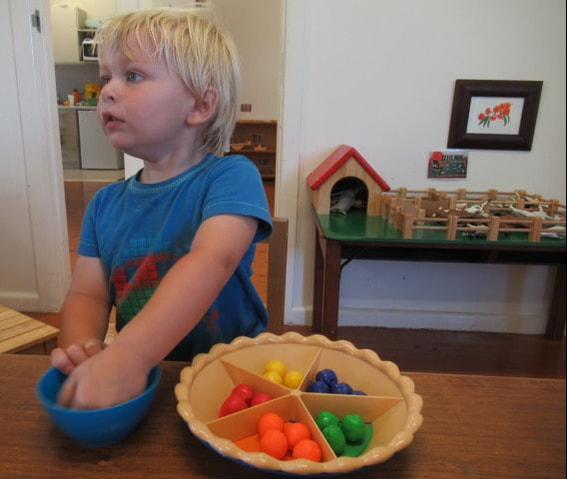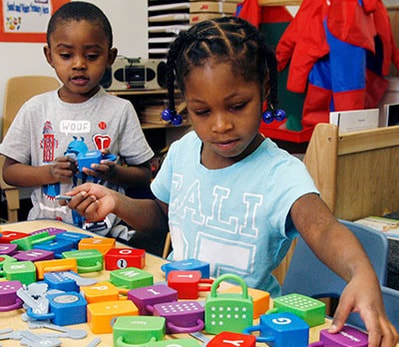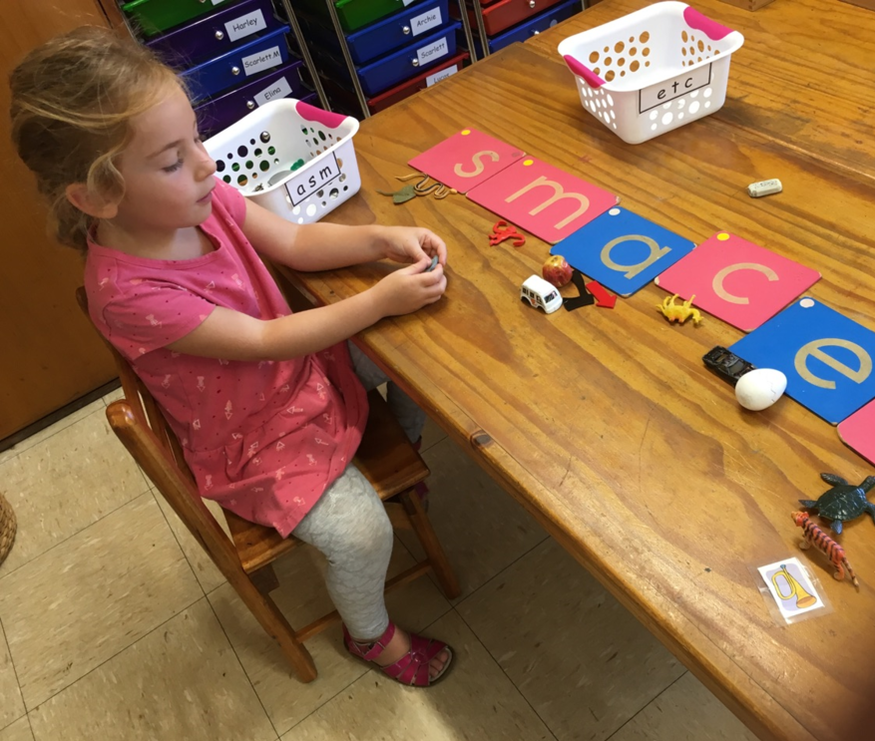Philosophy
One of the basic elements of Montessori philosophy is that children have an inner need to learn from their environment.
- Children are dynamic and curious and have an inner need to know the world. A Montessori classroom is carefully organized and prepared with fascinating materials, child size furniture and equipment.
- The child is able to learn through physically exploring, touching, building and experimenting within the environment around them.
- Hands-on leaning in math, language, sensorial, exploration, art, science, geography, and practical life activities creates an atmosphere for students to make life long discoveries and a place to use their imagination.
The process sets the foundation for lifelong learning.
- Classroom activities prepare the children for subsequent or concurrent work in mathematics, reading, writing, collaboration, and socialization.
- Through Montessori work, children develop strong observation and problem solving skills.
- Independence is a key element of Montessori philosophy in preschool, and beyond.
- Children choose activities from the environment and work at their own pace alone, or in small or large groups.


